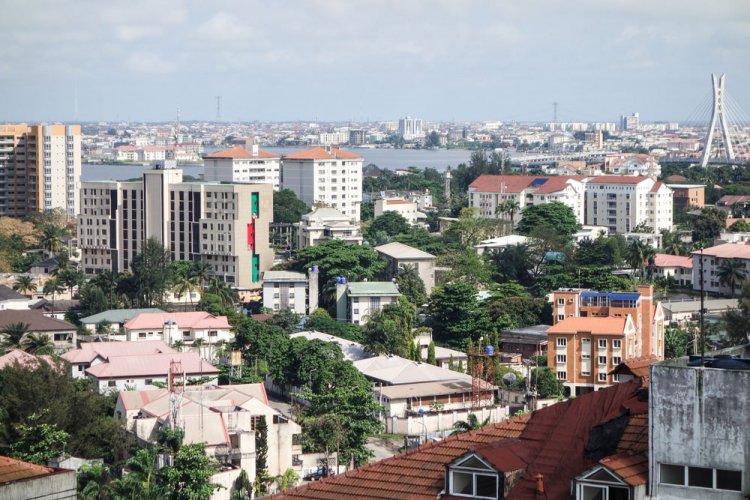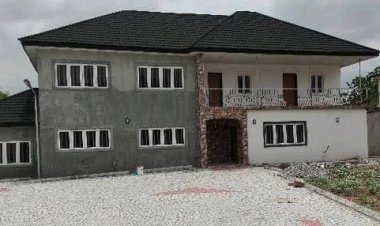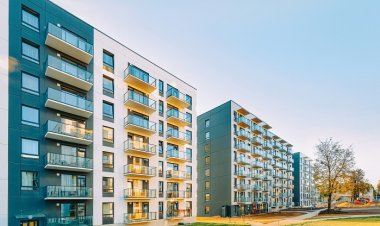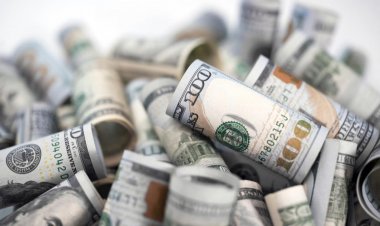Effects of Nigeria's Rising Costs On Real Estate Industry
In Nigeria, there are many unoccupied real estate properties on the market that are currently up for sale; however, there are very few...

Nigeria, the largest economy in Africa with nearly 210 million persons and known as the "poverty capital of the world" since 2016, has continued to experience an unparalleled spike in the costs of products and services.
It is a significant cause for concern, particularly when public goods and essential requirements of life become prohibitively expensive for the typical Nigerian. Food, housing, clothing, high-quality education, power, and even health care that was ostensibly meant to be affordable have all seen considerable price hikes in recent years. This trend is expected to continue.
Notably, a country with more than 42 percent of the populace is now below the poverty threshold of $1.9 a day when other variables such as joblessness and income inequality have increased. This country has 91 million people living in poverty.
The strike action embarked upon by (ASUU) the Academic Staff Union of Universities, poses a significant danger to education at the tertiary level; at the secondary and primary levels, they grapple with the problem of school students being kidnapped in various parts of the country.
The healthcare industry is nonetheless plagued by a never-ending exodus of talented workers, inadequate funding, and full welfare for specialists. Other serious problems that require rapid solutions include inflation and the instability of the naira on international markets, the crisis surrounding fuel subsidies, and an increase in the cost of energy.
Even if there has been no adjustment to the minimum wage of workers, financial analysts are concerned about the inexplicable and absurd increase in the costs of products and services across the board in the economy.
There are few excuses for the rise in the prices of products and services across the globe, which is not peculiar to Nigeria. This is mostly due to the COVID-19 outbreak, which resulted in a contraction of the global economy and disruption of supply chains. Despite this, it is not sufficient to justify the high rise in Nigeria's overall cost of living that has occurred in recent years. As a result of the rising rates of famine, sickness, and squalor, the economy can no longer be maintained at its current level.
Due to the drop in a quota implemented by OPEC countries and the conflict in Ukraine and Russia, the increase in prices of oil in the global market is denying Nigeria of the possible economic revenue. This is making a significant contribution to the financial mishaps of an economy that is dependent on imports.
The economic woes of the typical Nigerian appear to be exacerbated by all of these difficulties, and there is currently no sign of an end in sight. People allocate a portion of their already diminishing discretionary resources toward the provision of services in the areas of health care, education, and security by private companies. The economic well-being of the typical Nigerian is already at risk, and there is no obvious path for the country's development.
There are unoccupied real estate properties on the market that are currently up for sale; however, there are very few buyers interested in purchasing these properties due to the high prices. This is especially problematic when taking into consideration the fact that federal home loan initiatives are either nearly nonexistent or are not operating effectively.
Long queues at fuel stations, coupled with unregulated rates and meters that have been charged by unscrupulous marketers, have resulted in the temporary closure of companies whose survival is primarily dependent on the availability of fuel.
The price of a one-hour domestic flight ticket has increased by one hundred percent, up to N50,000, as a result of a three hundred percent increase in the price of aviation fuel, which has gone from N170 to N550. This is yet another catastrophic event, as it means that for the vast majority of Nigerians, this amount is almost twice as much as the minimum wage, which is N30,000.
The justifications offered for these excessive price increases in products and services are often completely baseless and frivolous, and they lack the pragmatism necessary to support such a significant increase in cost.
The growing living expenses in Nigeria will increase the prevalence of starvation, malnutrition, and violent crime. The rate of population increase is approximately 2.5 percent per year, which is a high level but unmanageable growth rate for an economy that is failing.
The Nigerian economy does not adhere to conventional economic principles. Regardless of how the market forces interact with one another, there is never a decrease in the pricing of products and services.
There is hardly any price stabilization board to safeguard customers, monitor, or check the excessive increase in the price of products and services across the economy. This makes it difficult to maintain price stability. It is anticipated that the exchange rate fluctuations, post-COVID-19 recovery measures, the Ukraine-Russia war, increased levels of insecurity, and growing costs of transportation in Nigeria would all contribute to additional increases in inflation.
A country that already has the biggest number of people living in poverty on the world scale has become unsustainable on an economic level. If the leadership and those who determine policy are unable to satisfy the urgent needs of the overwhelming majority of Nigerians, it would rather cause more Nigerians to be miserable and live in abject poverty.
If you have a real estate press release or any other information that you would like featured on African Real Estate Blog Post do reach out to us via email at [email protected]

 Deborah Omoare
Deborah Omoare 































